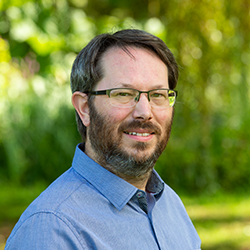Audio for hearables: sound analysis and context-aware rendering
Excellent opportunity for a PhD student to conduct research into the future of in-ear audio with our project partners Bang & Olufsen. Join us to develop machine listening to drive the next generation of hearables.
Start date
1 April 2020Duration
3.5 yearsApplication deadline
Funding source
Jointly funded by Bang & Olufsen and the University of SurreyFunding information
The studentship is for 42 months full-time study commencing between January—April 2020.
In addition to covering UK/EU tuition fees and a tax-free stipend of £15k/year, you will have access to a generous travel budget (to support attendance at academic conferences, for example) and will have opportunities to undertake research at Bang & Olufsen’s headquarters in Denmark.
About
InHEAR Project
“Hearables” – in-ear headphones with built-in microphones and signal processing capability – offer new opportunities to reproduce audio content in a way that adapts and responds to the listening context, e.g. background noise and personal preferences. The InHEAR project (Intelligent Hearables with Environment-Aware Rendering) will develop new algorithms to maximise the listener’s experience regardless of their listening context. The project is a collaboration between the University of Surrey, Bang & Olufsen and Aalborg University. You have a genuine opportunity to influence future generations of B&O products as well as to produce world-leading publishable and patentable research.
Your PhD
Your PhD in machine listening is based in CVSSP and focuses on the characterisation of the listening environment using signals from the in-ear microphones. We are interested to extract actionable information for adapting the user’s auditory display, building on expertise developed within the Centre, e.g., in binaural localisation, sound classification and audio tracking. Therefore, experience in programming (e.g., C++, Python, Matlab) is essential, and experience in acoustical signal processing or machine learning with applications to audio is highly desirable. Opportunities to advance the state-of-the-art for the selected use-cases will be identified and exploited. Scientific contributions will be disseminated at appropriate international conferences and meetings with the scientific research community.
About us
The Centre for Vision, Speech and Signal Processing (CVSSP) is a world-class research environment bringing together research on computer vision, graphics, machine listening and signal processing. The centre is a national hub for research in audio-visual media and maintains strong collaborative links with the UK creative industries (e.g., film, games and broadcast). You will work closely with another student based in the Institute of Sound Recording (IoSR), and with colleagues in research and development at B&O.
Eligibility criteria
Only UK/EU students are eligible. The funded studentships form part of a larger B&O-led project with external support (awaiting final confirmation) and collaborators at Aalborg University.
You will have a strong interest in audio and demonstrate a high level of academic achievement in relevant subject areas and a clear aptitude for research. We will need to be happy that you have the necessary background subject knowledge and the necessary research skills to begin your doctoral training.
You will ideally have a Masters in a relevant discipline and will definitely have a 1st or 2:1 Bachelors degree (or equivalent). You will be able to demonstrate excellent mathematical, analytical and computer programming skills. Advantage will be given to applicants with experience in one or more of: mathematics, programming, acoustics, psychoacoustics, signal processing, statistical analysis. Furthermore, you will have excellent research skills evidenced by a significant Bachelors/Masters research project, involving experimental research, appropriate use of the literature and/or computer-based simulations, and a formal dissertation-style report.
You will be enthusiastic and happy to work in a team including with colleagues at Bang & Olufsen.
English language requirements: IELTS overall score of 7.0 or above with a minimum of 6.5 in each component (or equivalent).
How to apply
Applications should be made online via the PhD in Vision, Speech and Signal Processing programme page.
Please mark clearly on your application that you wish to apply for the “InHEAR Project”, and if you have a preference for a particular studentship (in CVSSP/IoSR) please indicate it on the form. Once you have successfully submitted an application form, please contact Dr Philip Jackson.so that we can review your application in a timely manner.
Applications for April 2020 will be processed on a rolling basis in view of an earlier start if possible. If in doubt, please contact us. Please use your research statement to explain how your skills meet the person specification outlined
Informal enquires are welcome and should be made to Dr Philip Jackson.
PhD in Vision, Speech and Signal Processing
Studentship FAQs
Read our studentship FAQs to find out more about applying and funding.
Application deadline
Contact details

Studentships at Surrey
We have a wide range of studentship opportunities available.

